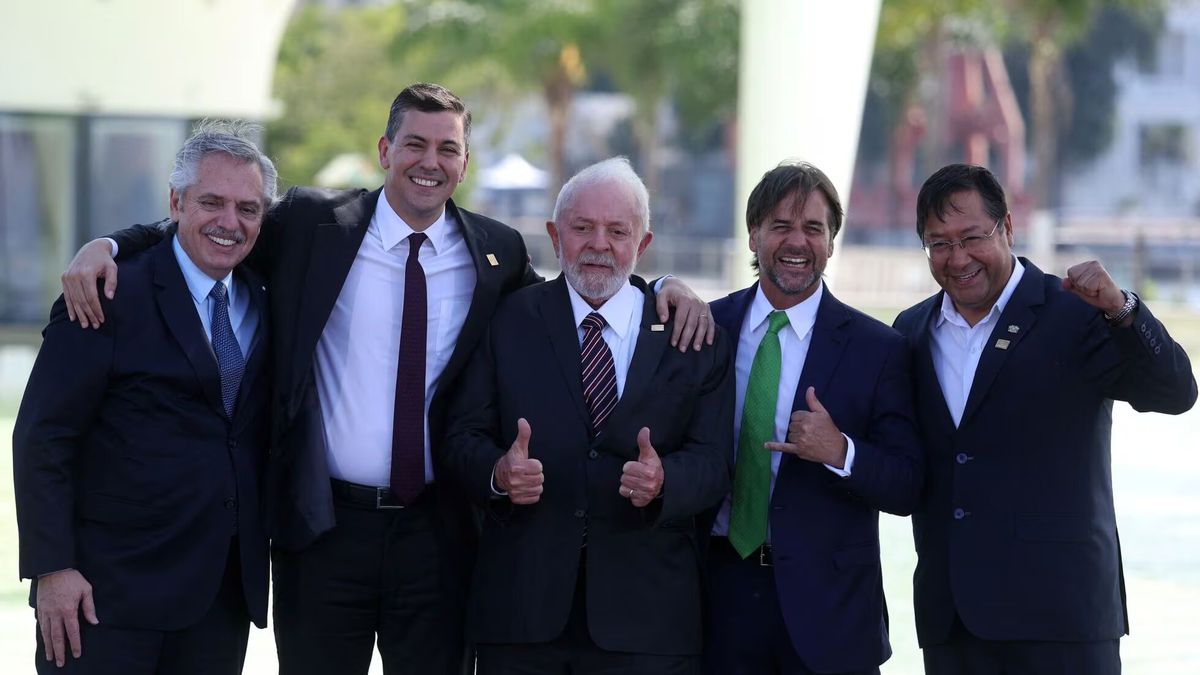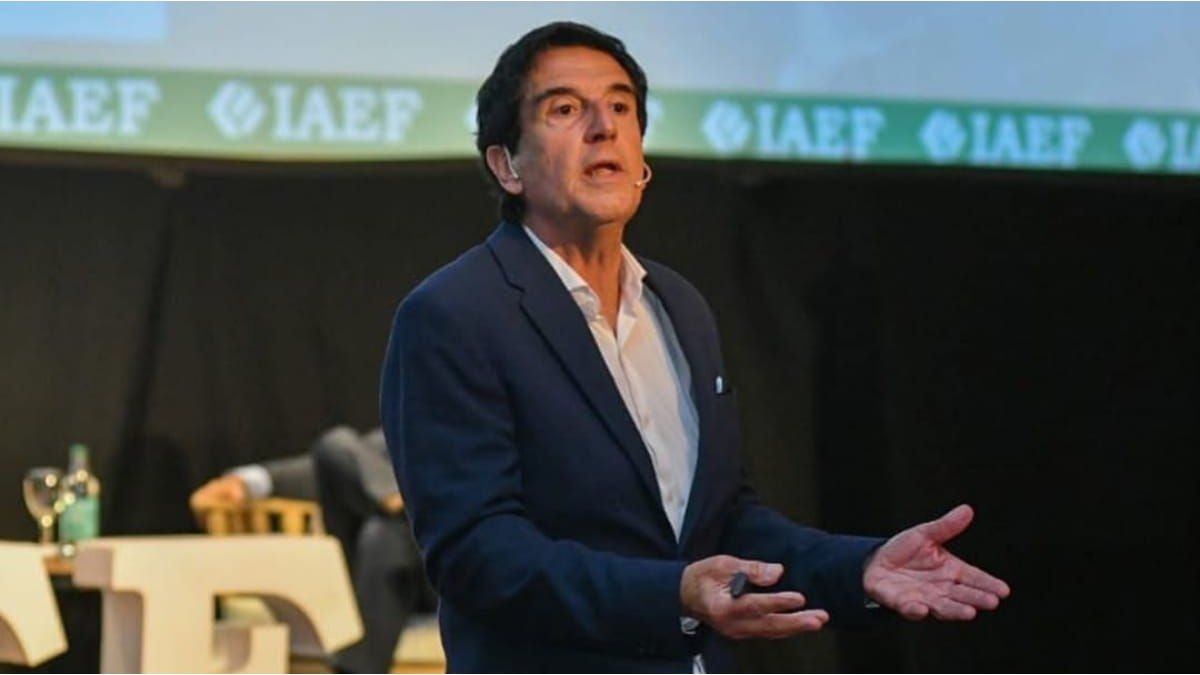President Luis Lacalle Pou participated yesterday in the LXIII Summit of Mercosur Heads of State which led to the transfer of the pro tempore presidency of Brazil to Paraguay and, as is customary for the president, he took advantage of his moment of intervention to insist on the importance of the possibility of greater commercial opening to the world for Uruguay. The delegation returns with good feelings, although with few concrete results.
The insistence on flexibility of the Mercosur was the axis around which, to no one’s surprise, Lacalle Pou’s speech in front of his peers at the summit revolved, which, in addition to being the scene of farewell for the Argentine president Alberto Fernandez —whose term ends on December 10— also received Bolivia as a full member of the bloc.
Of course, within that general framework, the relationship with China He had his leading moment. On the one hand, this is what the president had promised in his meeting with Xi Jinping just 15 days ago: raising the possibility of a summit between the Asian giant and the South American bloc to continue cementing commercial and diplomatic ties. On the other hand, the government sees in the changes in the distribution of powers within the regional group the possibility of making stronger progress in the bilateral agenda.
This was also noted in the tone of Lacalle Pou when referring to the subject: “What I want is for them to tell us the TRUE not because we are deceived, but rather that they tell us what the will of the countries is,” he asked his peers regarding the signing of the TFree Trade Agreement (FTA) so far truncated with China. And he went a step further by saying that “we all know that the respective foreign services have spoken with China to warn that it would not be seen well if Uruguay advance bilaterally. Im not saying anything new”.
The president had already raised this possibility on previous occasions outside of the meetings of the Mercosur and, although his statement was received with reproach in the room, it obtained a surprising response from Alberto Fernández, who during his moment of intervention, recognized the questioned attitude by Lacalle Pou and admitted that he himself called China to communicate that he did not think Uruguay’s unilateral advance towards the Asian country was correct.
According to the Uruguayan delegation, the comment of the outgoing Argentine president was unexpected but in a “very good tone” and without the intention of generating a climate of tension at the summit, according to El País. And although the confession does not move the needle of the foreign policy of the Mercosur, Yes, it is a signal to the government that, given the change of command in the neighboring country, can see fewer obstacles in their progress in the FTA.
A close relationship with Brazil
Another important point in Lacalle Pou’s speech was to highlight the achievements obtained in the relationship with Brazil, whose most concrete results are the inauguration of the Rivera binational airport next Monday the 11th and the next tender for the Waterway in Laguna Marín. “With satisfaction I want to say that we are going to be keeping our promise,” he said at the meeting regarding the commitments made with the Brazilian president. Luiz Inácio Lula da Silva during his visit to Uruguay in January.
In return, the Uruguayan delegation warned that Brazil once again ratified the proactivity on economic issues and infrastructure development during the summit in Rio de Janeiro, as confirmed by sources Chancellery to El País. “They went for cheap steaks,” summarized one of the Uruguayan leaders who accompanied Lacalle Pou.
Singapore and European Union
The FTA signed with Singapore, the first in the history of Mercosur with a country of Pacific Asiawas the jewel in the crown of a summit that, more than resolving, seemed to be the entry step to a new era in the internal relations of the regional bloc.
Designated as “a modern, state-of-the-art agreement” by the chancellor Omar Paganinithe document addresses issues related to digital commerce, intellectual property rights, sustainable development, mobility of people, and transparency, among other issues.
The countries of Mercosur will eliminate a 95.8% import tariffs that Singapore products currently support, which represents 90.8% of what is imported from the Asian nation.
The rapid resolution of this agreement with Singapore, whose first surveys began in 2018, contrasts with the delayed negotiations with the European Union, which have not shown notable progress for more than two decades.
In this regard, and in the middle of a skepticism increasingly greater in terms of the possibility of signing the treaty, the Mercosur issued a statement signed by all the presidents of the bloc in which they recognized “considerable progress” with Europe in relation to the free trade agreement.
“The negotiations continue with the ambition to conclude the process and reach an Agreement that is mutually beneficial for both regions and that responds to the demands and aspirations of their respective societies,” indicated the statement, which finally noted that “both parties hope to quickly reach an agreement.”
Source: Ambito




